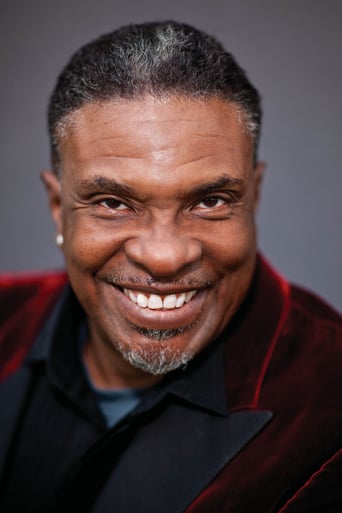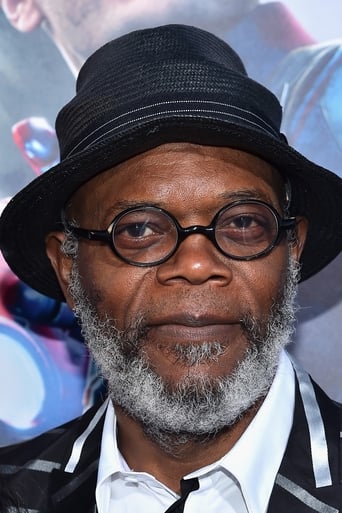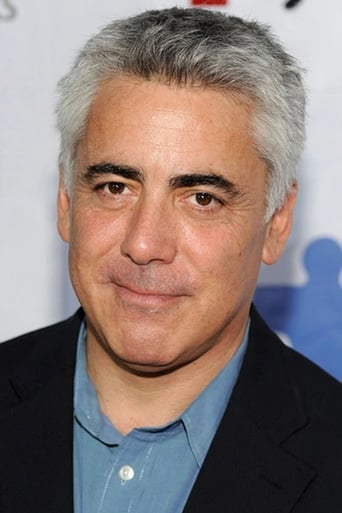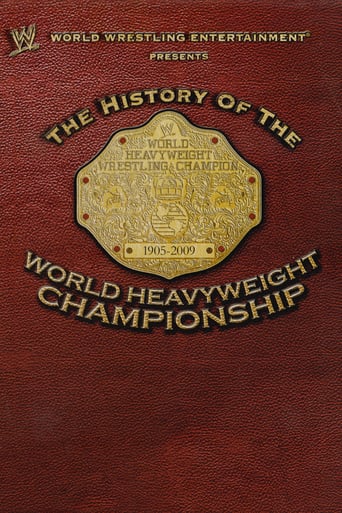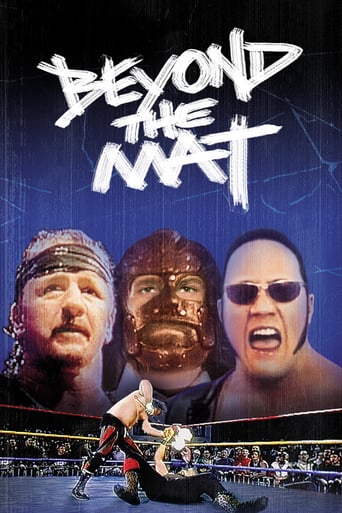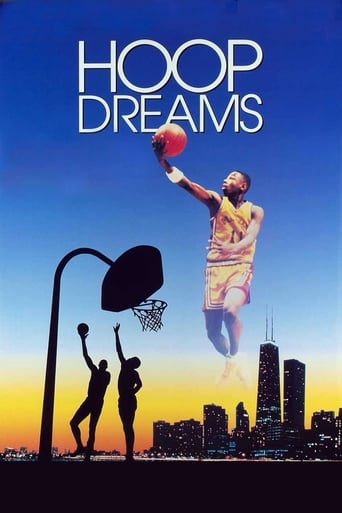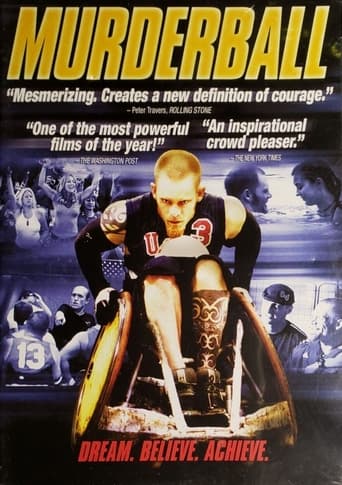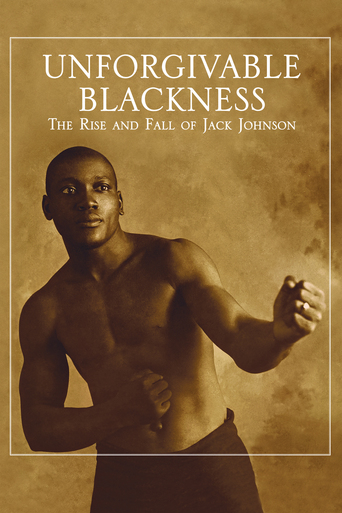
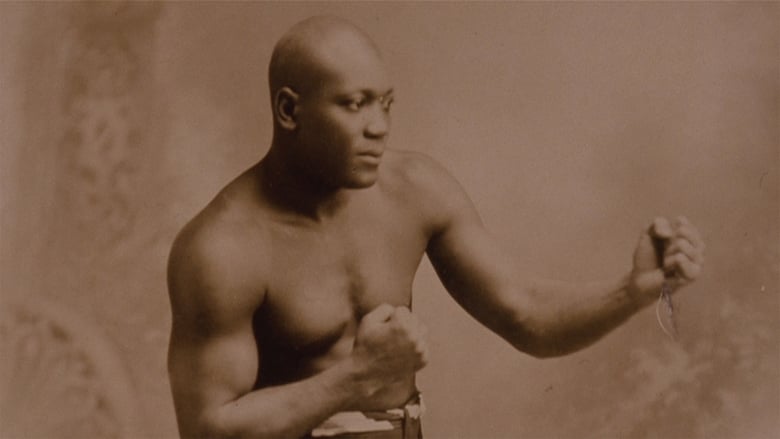
Unforgivable Blackness: The Rise and Fall of Jack Johnson (2004)
The story of Jack Johnson, the first African American Heavyweight boxing champion.
Watch Trailer
Cast


Similar titles
Reviews
Captivating movie !
It’s fine. It's literally the definition of a fine movie. You’ve seen it before, you know every beat and outcome before the characters even do. Only question is how much escapism you’re looking for.
One of the worst ways to make a cult movie is to set out to make a cult movie.
The film never slows down or bores, plunging from one harrowing sequence to the next.
The one thing that did surprise me about this otherwise impressive documentary that Ken Burns put together about Jack Johnson was that he did not use some archival recordings of Jack Johnson and for that matter Jess Willard's voice. Both are available, in fact on one of my vinyl LPs I have them. In the case of Johnson, Samuel L. Jackson captured both his voice and inflections of attitude quite well.When Joe Louis became heavyweight champion it was as much a milestone for racial equality as Jackie Robinson integrating professional baseball. Louis was a man conscious of what this country was around him as was Robinson and sought to become a hero to all. When he knocked out Max Schmeling in that second fight he did just that.Jack Johnson was a man born in a much harder and crueler time when black Americans may have been freed from slavery, but not from the attitudes that engendered it. He was the best at his sport, he knew it and he made sure everyone else knew it. It was only in 1967 that miscegenation laws were finally done away with by the Supreme Court, but in the years Johnson was in his boxing prime they were enforced with a vengeance. It galled a large section of white America that saw him keep public company with white women and even more that he beat just about every challenger black and white thrown at him.Looking at the Johnson-Jeffries fight of 1910 to me it's almost unfathomable that people could have invested so much in Jeffries in their racist hopes. Jim Jeffries licked all before him when he retired in 1905 undefeated in the ring. Probably had he taken on Johnson and such other black contenders like Sam Langford, Joe Jeanette, and Sam McVey he might well have beaten them. But the Jeffries who had been out of the ring for almost six years was never going to take on Jack Johnson in his prime. If anyone bothered to filter through all the racial crap and examined the situation logically no one would have bet on Jeffries.James J. Corbett another former champion who Jeffries beat twice in comeback attempts and who worked to train Jeffries for the bout was accused of racism. Probably so, he like many tossed a lot of racial epithets to get Johnson to lose his cool in the ring, but Burns mentions that Tom Corbett, Jim's brother was the chief bookie for bets on the fight in Reno. There was barely any money bet on Johnson, so the Corbett family may have had racial sympathies with Jeffries, but they would have cleaned up on all the money bet on Jeffries with them.When Johnson did lose to Jess Willard in 105 degree heat in Havana in 1915, he was passed his prime also and the years of high living cost him, probably put him passed his prime a lot sooner than he would have gotten there. Still seven years is a long time to be a boxing champion in any division. I remember as a kid when film of the Willard-Johnson fight were discovered, having thought to have been lost for years, Jess Willard was still alive and somewhat vindicated that he in fact won a clear victory despite all the rumors that Johnson had thrown the fight. It was 26 rounds in that tropical heat and Willard just outlasted Johnson, the same Johnson outlasted an over the hill Jim Jeffries.Why the heavyweight division was so racially sacrosanct was still a mystery. Joe Gans and Lampblack Joe Walcott were lightweight and welterweight champions at the time Johnson was champion and while life was no bed of roses for either of them, they never encountered the animosity that Johnson faced. He did in fact not fight those boxers I mentioned before when he won his title. The white champions didn't fight for racial reasons, but Johnson wouldn't fight them because they wouldn't draw any kind of gate. Sad, but he was right on the economics.It was also mentioned that he wanted to fight Jack Dempsey in the Twenties. Quite frankly if he couldn't take Willard, he would have been slaughtered by Dempsey in his prime. But Dempsey also refused to fight a great black heavyweight named Harry Wills who was left begging for a title shot and Wills would have been a match. The first black on black heavyweight title fight was when Joe Louis fought John Henry Lewis for the title in the late Thirties.Jack Johnson was a man out of his time as much as Joe Louis was a man of his. When Muhammed Ali came to the fore a lot of boxing fans and historians were taking a second look at Johnson and giving him is long overdue due. A lot of people say he was the greatest heavyweight champion of all time and one can make a great case for it.Which is what Ken Burns did in this extraordinary documentary.
Those looking for a sports documentary will be keenly disappointed. By relying on a ridiculously small number of commentators and sources, Ken Burns has put together a four hour indictment of white America for its past racism and intolerance. The sources not only are limited in number but only one of them--he late Burt Sugar--could claim real familiarity with boxing. And never was there anyone so in love with sound of his own voice. The man simply cannot shut up.The rest all are far-left hacks like Village Voice journalist Jack Newfield or like Stanley Crouch racial militants with nothing relevant to contribute but with a heavy political agenda leading to some very warped judgments about the era in which Jack Johnson lived and the man himself. While Jack Johnson was a great heavyweight, a real genius inside the ring, outside of it he was in no way the icon of racial struggle he is portrayed as here. Any comparisons to Muhammad Ali are far off base.Mike Tyson is the closest parallel with, below the waist, some Tiger Woods into the bargain, and while professional boxing recovered from Jack Johnson with great sportsmen like Gene Tunney and Joe Louis to later hold the title, Tyson has left such a bad smell that the prize ring probably will never recover its former luster.
As the author of a biography about Canadian heavyweight champion Tommy Burns, I can tell you Unforgivable Blackness didn't tell the whole story by portraying Tommy as a racist who had to be badgered into fighting Jack Johnson. Until Tommy Burns came along, all the heavyweight kings had been white Americans who openly drew the so-called 'colour line,' refusing to fight blacks. Tommy, who fought seven African-American boxers on his way up, announced the day that he won the title that he would take on all comers, regardless of race or religion. Among other things, Tommy Burns did the following: * Break the colour line by becoming the first white champ to fight a black boxer (Jack Johnson). * Become the first champ to give a Jewish boxer (Joseph Smith) a crack at the title. * Married a black woman. * Hire two black sparring partners. * Befriend and socialize with black fighter Billy Woods. Tommy Burns was a racist by the standards of 2007, often using the 'n' word in interviews. But by the standards of his era, he was a very progressive individual. And although director Ken Burns doesn't acknowledge it in his otherwise very good film, if it wasn't for Tommy Burns, no one alive today would know or care who Jack Johnson was. Dan McCaffery, author, Tommy Burns: Canada's Unknown World Heavyweight Champion
I saw this film at the 2004 Toronto International Film Festival. It may seem hard to believe, but I've never seen a Ken Burns film. I've always meant to, of course, but watching a multi- part documentary series is something of a commitment. So I jumped at the chance to see an entire film in one sitting. Clocking in at an impressive 218 minutes (and including a short intermission and a lively Q&A session, I was in the theatre for almost 4½ hours), I was hoping that the quantity would be matched by the quality. I was not disappointed.Jack Johnson was a true original. The first black man to hold the heavyweight boxing championship, he was a self-assured man who dressed well, drove fast cars, and kept white women as girlfriends. While not unusual now, this was highly irregular a hundred years ago, at a time when black lynchings were at their peak and the press regularly printed offensive cartoons to go along with its racist rhetoric. In the ring, he was a highly intelligent boxer, favouring a defensive style unknown in his day. He was also incredibly sensitive and articulate, especially for a man with only five years of formal education. But the struggles Johnson faced were almost insurmountable. No white champion would agree to fight a black man. Jim Jeffries preferred to retire undefeated rather than face Johnson, and Johnson had to travel around chasing champ Tommy Burns, hounding him to give him a title shot. When Burns finally agreed to a fight in 1908 (for a purse of $35,000, an unbelievable sum in those days), the contest wasn't even close, with Johnson dancing around, taunting his opponent, and talking to people in the ringside seats. The police stepped in during the fourteenth round to prevent him from knocking out the badly beaten Burns.Johnson held the title from 1908 until 1915, with his most famous bout in 1910, against ex- champ Jeffries, whom he soundly defeated. This led to race riots all over the country, and many people were killed. From the moment he won the championship, it seemed that white society looked for ways to discredit him. The press were relentless, printing hostile editorials and calling for a "Great White Hope" who would return boxing's crown to its rightful place (and race). When a 37-year old Johnson finally lost the championship to Jess Willard, a giant man ten years his junior, it seemed to many that the black race had been taught an important lesson.Johnson's life was troubled, and he continued to face persecution from the press and even law enforcement, who prosecuted him on charges related to his "debauchery" with white women. He eventually served a year in prison. There would not be another black heavyweight champion until Joe Louis, 22 years later.This is a remarkable film for many reasons. First of all, in the little-known story of Jack Johnson, Burns has found a microcosm of the racial situation of the day, and one that has many echoes even now. Muhammad Ali, after seeing James Earl Jones portray Johnson in the Broadway play "The Great White Hope" (later made into a film), declared that Johnson's life story was similar to his own. A black man choosing to live as a free individual on his own terms is something that is still hard for some white people to tolerate.Burns' film is also remarkable for the way in which it uses actual archival film of Johnson's bouts. Using silent film, Burns and his crew have added sound effects such as crowd noise and the sounds of blows connecting, and it gives these scenes the visceral punch they require. Finally, the superb "talking heads" (including the late George Plimpton, James Earl Jones, and the witty Stanley Crouch) and voice talent (Samuel L. Jackson is the voice of Johnson; others include Billy Bob Thornton, Derek Jacobi, Brian Cox, and Alan Rickman) bring the extraordinary story of Jack Johnson vividly to life.As an added bonus, you get to hear James Earl Jones say "balls". Twice.(9/10)


